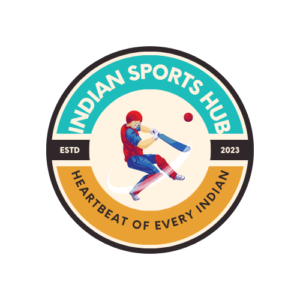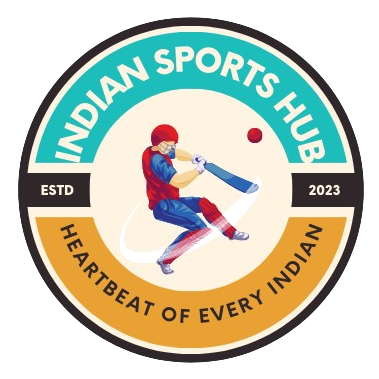Introduction
In the fast-paced world of sports, where athletes constantly push their physical limits, the importance of rest and recovery cannot be overstated. Athletes undergo rigorous training, subjecting their bodies to high-intensity workouts, making it imperative to understand the significance of proper recovery strategies. In this article, we will explore the crucial role of rest in enhancing athletic performance and provide valuable strategies for athletes to optimize their recovery.
The Physical Demands on Athletes
Athletes endure intense training regimens, pushing their bodies to achieve peak performance. The physical demands of sports place considerable stress on muscles, joints, and the overall physiological system. Recognizing and addressing these demands is vital for athletes to sustain their performance levels and prevent burnout.
Importance of Rest for Performance Enhancement
Rest is not merely a break from activity; it is a fundamental component of performance enhancement. Adequate rest allows for muscle repair and growth, balances hormonal levels, and prevents the detrimental effects of overtraining. By understanding the science behind rest, athletes can unlock the key to sustained success.
Strategies for Effective Rest and Recovery
To achieve optimal recovery, athletes must adopt comprehensive strategies. Quality sleep, a nutrient-rich diet, and active recovery methods play pivotal roles in the restoration process. We delve into each of these elements, providing actionable insights for athletes seeking to elevate their recovery game.
Mental Well-being in Athletes
The mind and body are intricately connected, and mental well-being is a cornerstone of athlete performance. We explore the relationship between physical and mental health, emphasizing the role of rest in mental rejuvenation. Additionally, stress management techniques tailored for athletes are discussed.
Periodization in Training
Structured training cycles, known as periodization, play a crucial role in balancing intense workouts with adequate rest. Athletes can optimize their performance by understanding and incorporating strategic rest phases into their training schedules.
Technology and Innovation in Recovery
Advancements in sports recovery technology have revolutionized the way athletes approach rest. Wearable devices, recovery tools, and cutting-edge innovations have become integral components of an athlete’s recovery toolkit. We explore the impact of technology on athlete recovery and highlight popular tools.
Common Myths about Rest in Sports
Debunking misconceptions surrounding rest is essential for athletes to make informed decisions about their recovery. We address common myths and emphasize the importance of tailoring recovery plans to individual athlete needs.
Real-life Examples of Successful Recovery
Profiles of elite athletes serve as inspiration for aspiring sports stars. By examining the recovery routines of these accomplished individuals, athletes can glean valuable insights into building effective recovery practices.
Monitoring Recovery Progress
Tracking performance metrics and adjusting recovery strategies based on individual progress are critical aspects of athlete self-care. Collaboration with healthcare professionals ensures a holistic approach to recovery, enhancing the effectiveness of rest strategies.
Challenges in Prioritizing Rest and Recovery
While the benefits of rest are clear, athletes face challenges in prioritizing recovery due to competitive schedules and industry pressures. This section addresses the obstacles athletes encounter and provides strategies for overcoming them.
Athlete Testimonials
Statements from athletes about the impact of recovery, personal experiences, and inspiring stories are shared in this section. Athlete testimonials provide firsthand accounts of the transformative power of prioritizing rest and recovery.
The Role of Coaches and Support Staff
Coaches and support staff play a pivotal role in educating athletes about the importance of recovery. Building a holistic approach to athlete well-being requires collaboration and a shared commitment to prioritizing rest.
Future Trends in Sports Recovery
The article concludes by exploring emerging trends in sports recovery. From cutting-edge technologies to ongoing research and innovations, we provide a glimpse into the future of athlete recovery.
Conclusion
In the dynamic world of sports, where success is measured by inches and seconds, the importance of rest and recovery cannot be overstated. By prioritizing comprehensive recovery strategies, athletes lay the foundation for sustained performance excellence. As we conclude, we encourage athletes to embrace rest as a powerful ally in their quest for success, recognizing its long-term benefits on physical and mental well-being.
FAQs
- How much rest do athletes need for optimal recovery?
Athletes’ recovery needs vary, but experts recommend at least 7-9 hours of quality sleep and strategic rest days within training cycles.
- Are there specific foods that aid in recovery?
Yes, nutrient-dense foods like lean proteins, complex carbohydrates, and antioxidants support muscle repair and overall recovery.
- Can overtraining be reversed with proper rest?
Yes, overtraining can be reversed with adequate rest, but it requires a structured approach, including reduced training intensity and increased recovery measures.
- Do wearable devices truly enhance athlete recovery?
Wearable devices can provide valuable data on performance and recovery, guiding athletes in optimizing their training and rest routines.
- How can coaches promote a culture of rest among athletes?
Coaches can promote rest by educating athletes, incorporating recovery into training plans, and fostering a team culture that values overall well-being.



